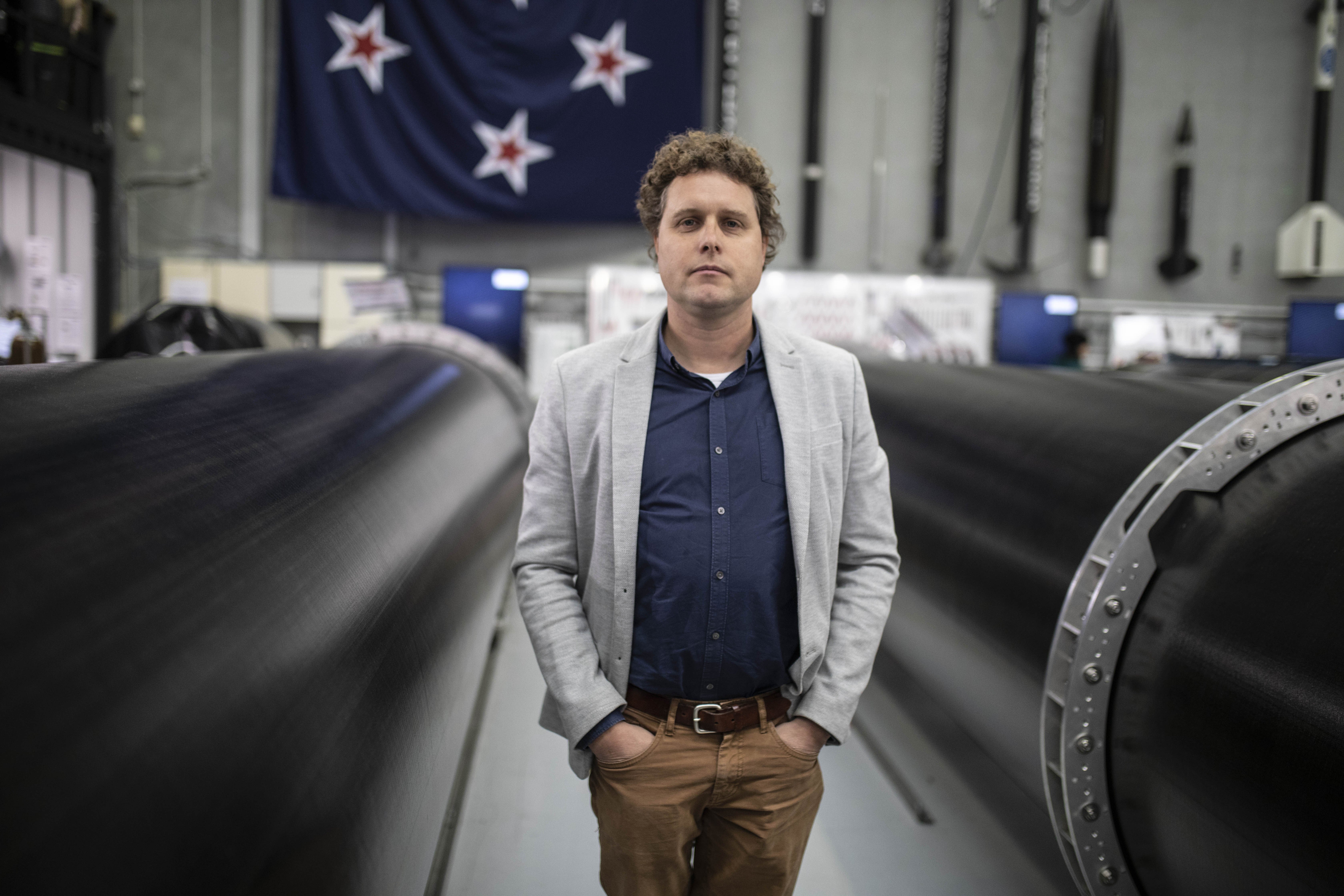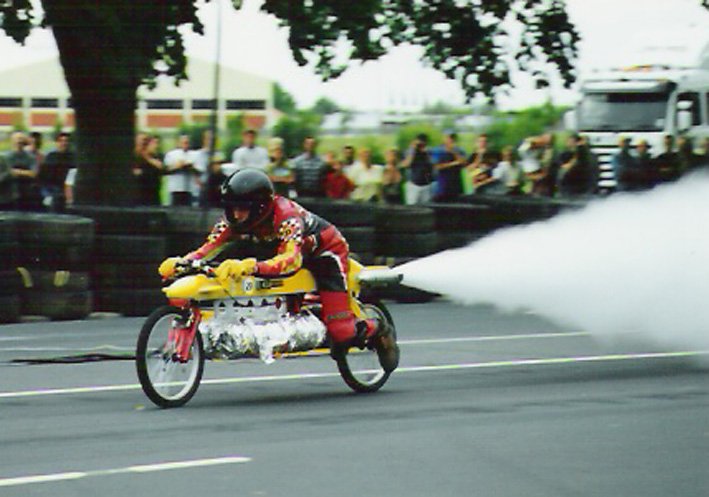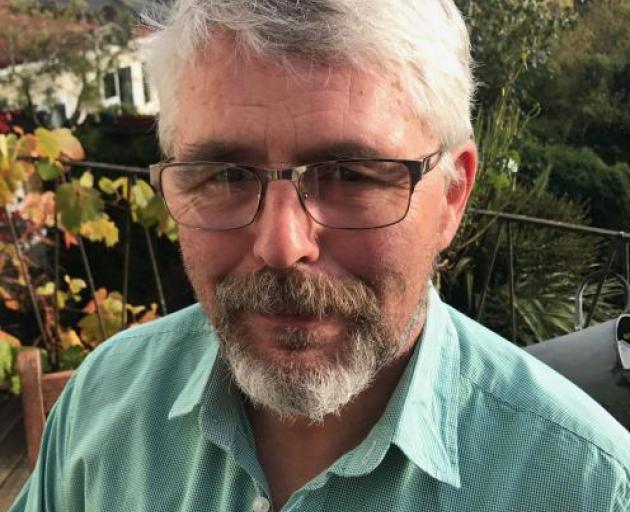
Most kids dream of building rockets and flying them to space - but Southland-born Peter Beck has actually done it and made a billion dollars in the process.
A couple of weeks ago Mr Beck’s space business, Rocket Lab, had smooth takeoff on United States’ technology-focused Nasdaq stock exchange, its shares landing at a price valuing the company at $US5.2 billion ($NZ7.4 billion).
The company, started in 2006 by Mr Beck, is an aerospace manufacturer and small satellite launch service provider.
In 2009, Rocket Lab claimed to be the first private company in the southern hemisphere to reach space after launching its Atea-1 sounding rocket.

But to get the full story, you have to come back down to Earth to see where Mr Beck started and how an upbringing in Southland and early career at Fisher & Paykel, where he was encouraged to pursue his dreams, contributed to his success.
Whether it was building motorbikes at secondary school or a dangerously over-powered rocket bike, he was always chasing crazy ideas.
Mr Beck grew up in Invercargill, born into a family who loved machines.
His father, Russell Beck, who died in 2018, was the former director for the Southland Museum and Art Gallery and his mother, Ann , was a teacher.
He attended Invercargill’s James Hargest College before leaving early, at age 17, to take up a toolmaking apprenticeship at Fisher & Paykel in Mosgiel in 1995.
One of his teachers at James Hargest was Graeme Childs, who taught him technology and remembers him well.
Mr Childs described Mr Beck as a ‘‘very dedicated’’ pupil.
He believed he taught him for about three years in various technology classes.
Mr Beck had two other good mates in those classes - ‘‘by God they were good’’, Mr Childs said.
So good that Mr Childs trusted them inside the workshop during break times and before and after school, and it did not worry him.
‘‘I totally trusted those three blokes and I still would to this day,’’ he said.
He still had old marking books and was sure Mr Beck’s marks would be in there somewhere.
‘‘He was always in the ‘A’ lot, there is no doubt about that.’’

One of group came from a farm, which made it easy enough to source the parts.
Mr Childs agreed the boys could make the bike on the condition he signed off the plans.
There was one more condition - the motor could not be over 100cc.
‘‘I was thinking, that will be OK, that will be a chainsaw motor, but it didn’t quite turn out like that.’’
One of the group had found a tailboard motor which was more like 200cc. Mr Childs reluctantly agreed they could use it.
‘‘They were hellbent on it so I said it’ll be right.’’
They eventually got it going and Mr Beck took off on it during one of Mr Childs’ classes.
‘‘I just saw him fly past the window and I thought where the bloody hell has he gone.’’
After waiting for about 20 minutes, just before the end of the period, Mr Childs poked his head out the door to see Mr Beck walking the bike down the road with a ‘‘silly grin on his face’’.
‘‘I said, ‘Peter, where have you been?’
‘‘He said, ‘sorry Mr Child, I went up the road’, and I had to stop and I said, ‘why’s that?’.
‘‘He said, ‘a man in a black car and a cap on stopped me’, and I said, ‘you mean a policeman’ - ‘yes’, he replied,’’ Mr Childs said, laughing.
After Mr Beck left school, he paid Mr Childs a visit at home in a Mini he had done up.
Mr Childs said Mr Beck asked him whether he would like to go for a ride - ‘‘I went for a ride all right, boy oh boy.’’
‘‘My hair bloody well didn’t lay back down on my scalp again for a while.’’
Mr Beck had done up the Mini during his time at Fisher & Paykel.
‘‘That was what old Peter was like, he just went for it and had to make it better,’’ Mr Childs said.
Mr Childs had since lost contact with Mr Beck but watched his progress with great interest.
Just as Mr Childs let him have free rein of the workshop at school, Mr Beck had freedom at Fisher & Paykel at Mosgiel.
In an interview with the Otago Daily Times in 2009, Mr Beck said management ‘‘turned a blind eye’’ to his early rocket-building projects.
‘‘They drew the line at me making rocket propellant on site, but just about everything else they were really supportive of.’’
Chris Staynes - now a Dunedin city councillor - was general manager at the Mosgiel site when Mr Beck was there.
Mr Staynes described him as a ‘‘very very bright’’ young engineer.
‘‘We only ever employed the very best and he was well above that.’’
Mr Beck had a great personality and it was no surprise he had gone on to do great things, Mr Staynes said.
‘‘That was very clear from when he started.’’
Richard O’Mahony took Mr Beck’s spot on Fisher & Paykel’s workshop floor in 1999.
Mr Beck was promoted to the design room and Mr O’Mahony moved to Dunedin to take the job in the shop.
He described Mr Beck as a ‘‘skinny wee kid from Invercargill but absolutely intelligent’’.

Mr O’Mahony recalled that once Mr Beck went into the design room, he wanted to keep the guys in the workshop ‘‘sweet’’ so he could still use the machines.
‘‘There was a lot of bright, bright people that start worked at Fisher & Paykel, but to be fair he always stood out.
‘‘At times we thought he was a bit mad but he had these huge ideas and we thought he’d work for Nasa someday, but they’re coming to him now.’’
Mr O’Mahony worked at Fisher & Paykel until it closed in 2009.
He remembered Mr Beck building a rocket-powered bike in the workshop, which ended up making the 6pm news.
One day he gave the bike a test run on the Fisher & Paykel grounds - ‘‘I don’t know what speed he got up to but he literally could have killed himself,’’ Mr O’Mahony said.
‘‘He took off at an amazing rate and I don’t even think he knew how he was going to stop the thing.
‘‘He almost smacked it into a container and we were just standing around, mouths open.’’
Mr O’Mahony remembered the night he raced the bike at the annual Festival of Speed in Dunedin’s Princes St.
‘‘He took the bike out and people were thinking, ‘what the hell is this guy up to?’, and then he took off - they could not believe it.
‘‘He’s gone from that to putting stuff into space, it is just incredible.’’
Once Mr Beck left Mosgiel, Mr O’Mahony did not hear of him for a few years until he started making headlines and he thought, ‘‘oh shit, there is old Peter’’.
‘‘It is just amazing what he has achieved. I’ve seen him on the TV, like everyone has and he looks the exact same,’’ Mr O’Mahony said.
After spending six years at Fisher & Paykel, in 2001, Mr Beck got a job in Auckland at Industrial Research, now Callaghan Innovation, where he continued to work on his passion - rockets.
It was at Industrial Research he met Sir Stephen Tindall - one of his first investors.
Then, in 2006, he set up Rocket Lab.
Mr Beck believed his firm’s listing on the Nasdaq late last month was symbolic for New Zealand tech and New Zealand tech entrepreneurs.
He told The New Zealand Herald ahead of the bell ringing that he would love to see other New Zealand companies follow in Rocket Lab’s footsteps and end up on the index.
On the first day of trading, the stock began at $US11.50 but slid to $US10.05 in early trading. Late in the session, it was changing hands at $US10.45.
For five days running this week, the company’s share price has continued to climb; during Thursday’s trading its shares surged 30% to nearly $US20 a share, well above their issue price.
While Mr Beck is flying to space making billions, there is a sense his story should be an inspiration to any young kid flying around the backyard in a cardboard rocket.
- Additional reporting The New Zealand Herald












